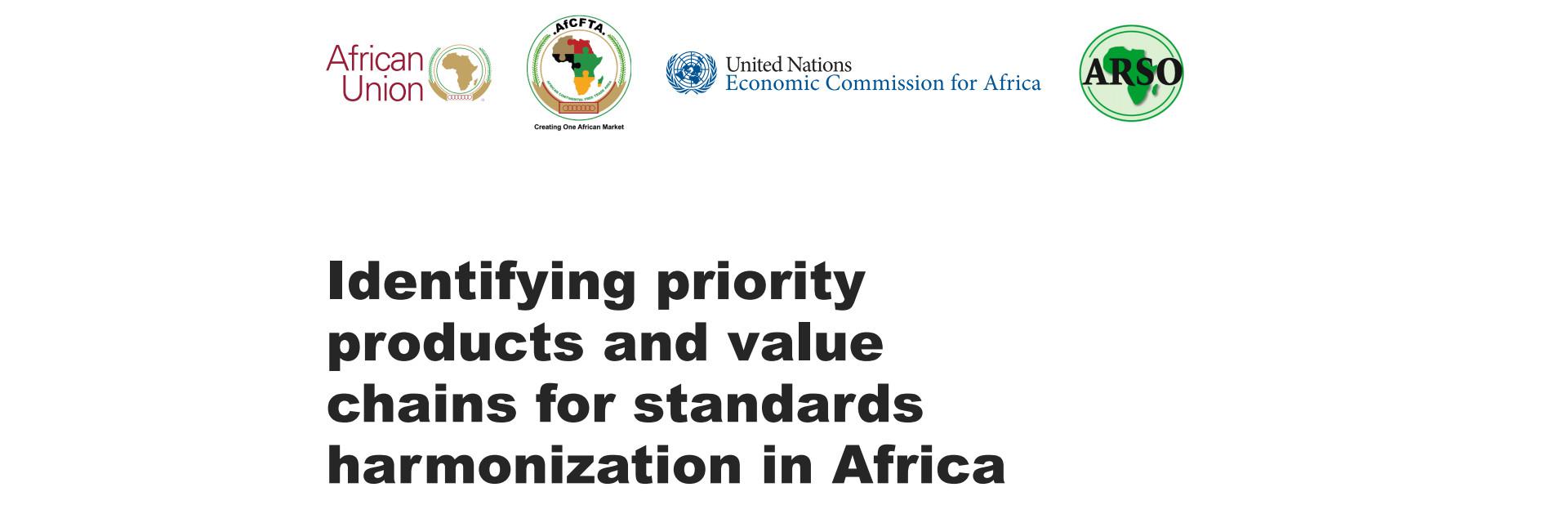Addis Ababa, 3 October 2020 (ECA) – The report on “Identifying Priority Products and Value Chains for Standards Harmonization in Africa” jointly published by the African Trade Policy Centre (ATPC) of the United Nations Economic Commission for Africa (ECA), African Organisation for Standardisation (ARSO) and the African Union Commission (AUC) was launched during a webinar to launch a series of Pan African Quality Infrastructure (PAQI) publications in support of AfCFTA implementation.
The different publications were launched by H.E Mr. Albert Muchanga, Commissioner of the Department of Trade and Industry of AUC and H.E. Josefa Leonel Correia Sacko, Commissioner for Rural Economy and Agriculture of AUC, Dr. Celestine O. Okanya, Chairperson of PAQI, and were moderated by the Dr. Hermogene Nsengimana, Secretary General of ARSO and co-moderated by Dr. Oswald S. Chinyamakobvu, Senior Technical advisor of AUC.
Speaking at the webinar, Mr. David Luke, Coordinator of the ATPC, emphasised that the AfCFTA Agreement has the potential to be a game changer for Africa’s industrialization but it is now widely understood that the industrialization and trade potential of the AfCFTA will not be realized without adequate quality infrastructure systems including metrology, standardization, accreditation, quality management and conformity assessment.
He further commended the “significant progress in harmonizing standards at the Regional Economic Community (REC) level”, whilst also pointing out that “gaps remain, and efforts by the RECs have not been sufficiently coordinated at the continental level.”
Ms. Lily Sommer, ATPC Trade Expert, presented the main findings and recommendations of the report, highlighting that AfCFTA offers an opportunity for existing RECs to tap into under-exploited market opportunities in other African countries (outside their current RECs). She noted that the report’s analysis identified significant overlap in priority regional value chains (RVCs) for RECs, indicating an entry point to develop competitive between-REC value chains. Common value chains identified across RECs included agro-processing, minerals beneficiation, wood products, irons and steel, cotton and textiles. Ms. Sommer concluded by sharing a list of priority products identified for standards harmonisation based on the analysis, namely, Portland cement, fish, milk, fruits, edible oils, cereals, automobiles and mineral water.
The discussions highlighted the need for the continental standards harmonization process to be underpinned by a) existing WTO TBT and SPS Agreements as sources of best practice, but with adaptations for Africa’s development needs; b) continental structures to support the development of African Quality Standards, such as ARSO; c) existing REC standards harmonization catalogues, which already provide harmonized standards across countries within the same REC; d) value chain priorities that are common across RECs, and which offer potential for strong forward and backward linkages. Mr. Luke concluded by announcing ECA’s new collaborative project with ARSO to develop outreach materials on the traditional medicines sector. He noted that around 80 percent of the population living in Africa rely on traditional forms of medicine to meet their health care needs, but African traditional medicine suffers from a serious lack of documentation which can lead to incorrect usage. The project is expected to contribute to ensuring the quality, safety, and efficacy of traditional medicines.
Issued by:
Communications Section
Economic Commission for Africa
PO Box 3001
Addis Ababa
Ethiopia
Tel: +251 11 551 5826
E-mail: eca-info@un.org

